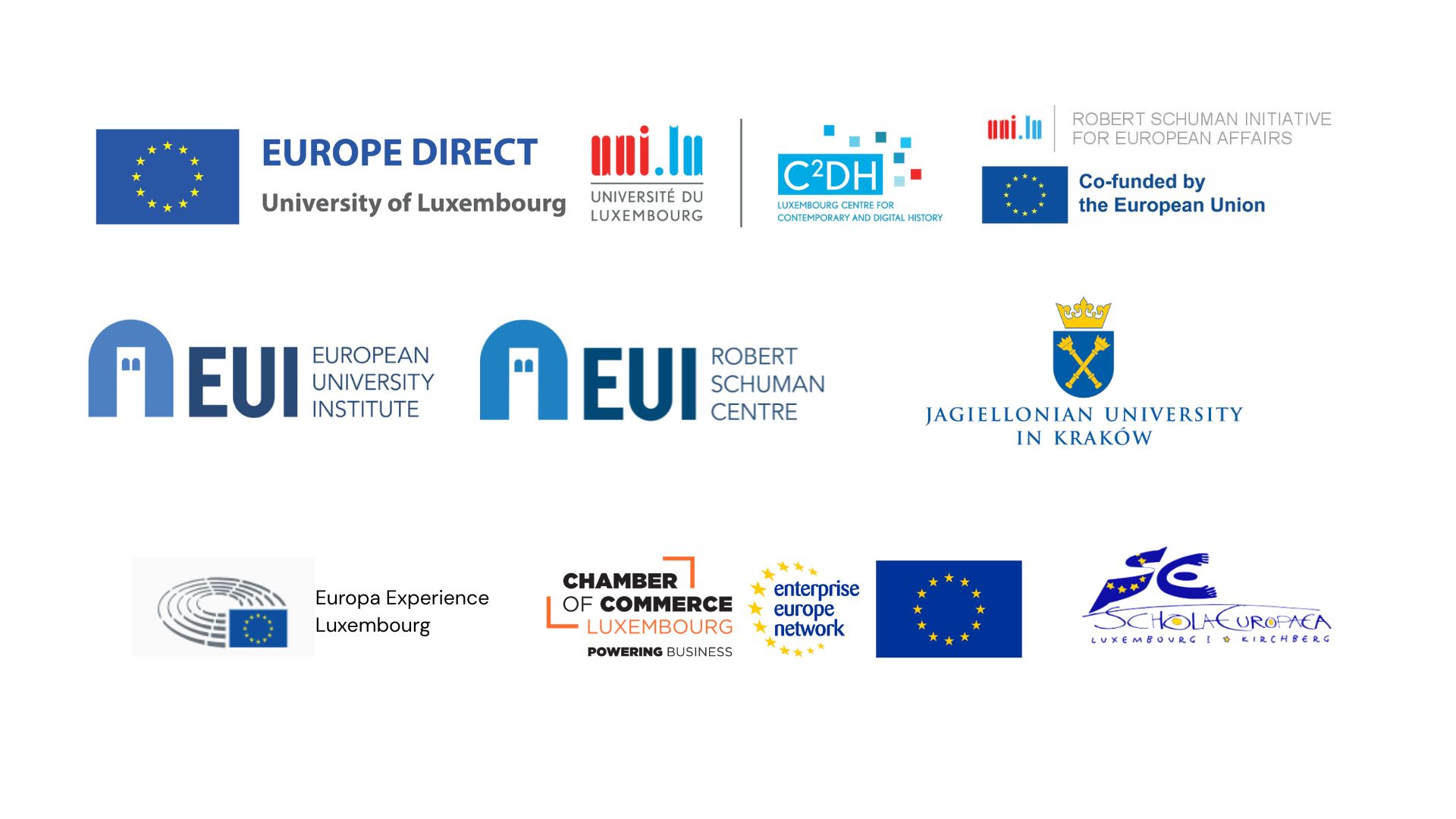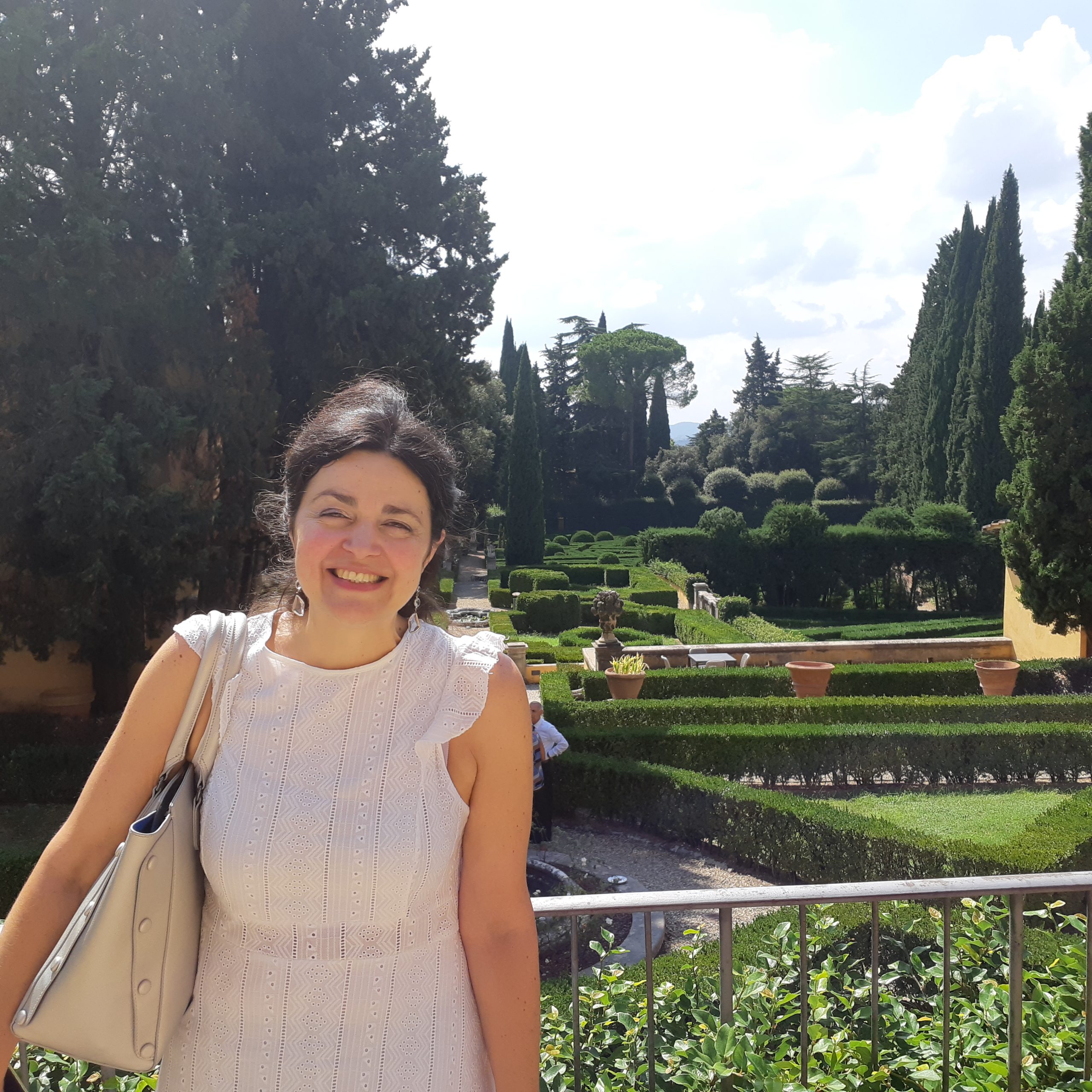The sixth edition of the Winter (Online) Lecture Series on Europe (WOLS 2025) will take place at the University of Luxembourg from 1 to 17 December 2025 in connection with the courses “History of European integration (1919-1993)” (MAHEC-142) and “Economic and social history of Europe after 1945: concepts, processes, actors” (MAHEC-63) from the Master in European Contemporary History, and the course “Democratic transitions in Central and Eastern Europe” (BCE-EU-301-04) from the Bachelor in European Cultures.
The aim is to give students on these programs, as well as the wider academic community at the University of Luxembourg, the opportunity to find out about the history and workings of the European institutions in Luxembourg from new and unconventional angles and to discuss some of the milestones in contemporary European history with people who were involved in or witnessed these events. Each session (in English, with a Q&A session in French and English) will be streamed via Webex and will include a presentation by a speaker followed by a discussion with the audience and the opportunity to ask questions.
The lectures, which are also open to the wider public, are run in conjunction with Europe Direct at the University of Luxembourg (ED-UNILU) – a competitive European public history project co-funded by the European Union (2021-2025) –, the Robert Schuman Initiative for European Affairs at the University of Luxembourg (RSI) – a Jean Monnet Centre of Excellence (JMCE) for the study of European integration and the European Union –, which also financially supports the lectures, and several other partners including: the European University Institute (EUI) (Florence, Italy), Robert Schuman Centre for Advanced Studies at the EUI Florence, Florence School of Transnational Governance (Florence, Italy), University of Padova (Italy), Jagiellonian University (Krakow, Poland), Europa Experience Luxembourg, Chamber of Commerce Luxembourg, Entreprise Europe Network Luxembourg, European School Luxembourg I – Kirchberg.
The conference will be in English.
Chair and discussant: Dr Elena DANESCU
Guest lecturer: Prof. Valentina VADI
Short biographies:
Valentina VADI is an Associate Professor of International Law at the School of Political Science, Law, and International Studies of the University of Padua, Italy. She formerly held positions at the University of Florence, Lancaster University, and Maastricht University. She also was recently a Jean Monnet Fellow at the Robert Schuman Centre for Advanced Studies of the European University Institute (2024–2025) and a Michigan Grotius Senior Research Fellow at Michigan Law School (2019). Her research focuses on public international law, international investment law, and cultural heritage. She has published over 100 articles and other contributions, including books such as Proportionality, Reasonableness and Standards of Review in International Investment Law and Arbitration (Edward Elgar, 2018), War and Peace: Alberico Gentili and the Early Modern Law of Nations (Brill, 2020), and Cultural Heritage in International Economic Law (Brill, 2023).
Elena DANESCU is a Research Scientist at the Luxembourg Centre for Contemporary and Digital History (C²DH). She is a member in the Contemporary European History research group and is accredited to supervise PhD candidates within the Doctoral School in Humanities and Social Sciences. Her research, teaching and publications focuses on contemporary European history, European integration, EMU, history of economic thought, oral history, the role of women in diplomacy. She is an elected member of: the University Council (2018-2023 and 2023-2028), the Board of the Fondation du Mérite européen and the Council of the Fondation Jean Monnet pour l’Europe. She’s also in charge of Europe Direct University of Luxembourg – a competitive public history project co-funded by the European Union (2021-2025) and a founding fellow of the Robert Schuman Initiative for European Affairs. In 2020, she was awarded the Fernand Braudel Senior Fellowship at the European University Institute (EUI), and in 2024, she received a Jean Monnet Fellowship at he Robert Schuman Centre for Advanced Studies (RSCS) for the interdisciplinary research project “The Female Face of the EU.”
Abstract:
This presentation examines how cultural heritage contributes to community resilience in the face of conflict, environmental change, and cultural suppression. Cultural heritage, both material and immaterial, is presented not just as memory, but as a living resource that supports identity and social cohesion. The analysis draws on several branches of international law, showing how global conventions protect and reinforce this role. These include frameworks on world heritage, cultural diversity, intangible heritage, Indigenous cultural rights, and underwater heritage. The study also connects heritage protection to broader areas of law, such as responses to cultural genocide, wartime protections, and environmental sustainability. Overall, it concludes that international law is increasingly recognizing cultural heritage not merely as something to preserve, but as a foundation of collective resilience and adaptive capacity.
Conference given in the framework of the 2025 edition of Winter (Online) Lecture Series on Europe.
Click here for the lecture recording (password: CmzxJiA5)
Photo © Valentina VADI

